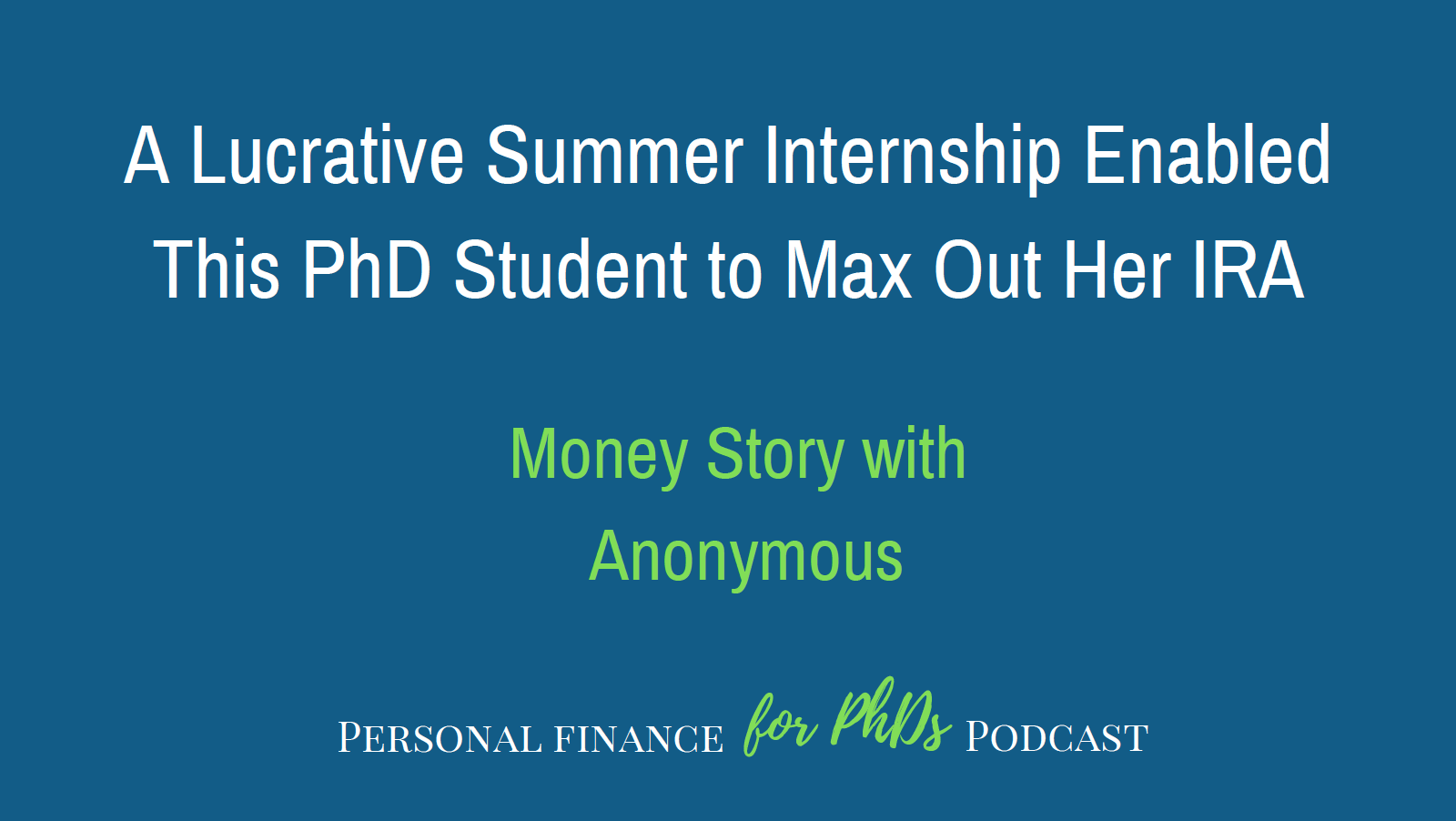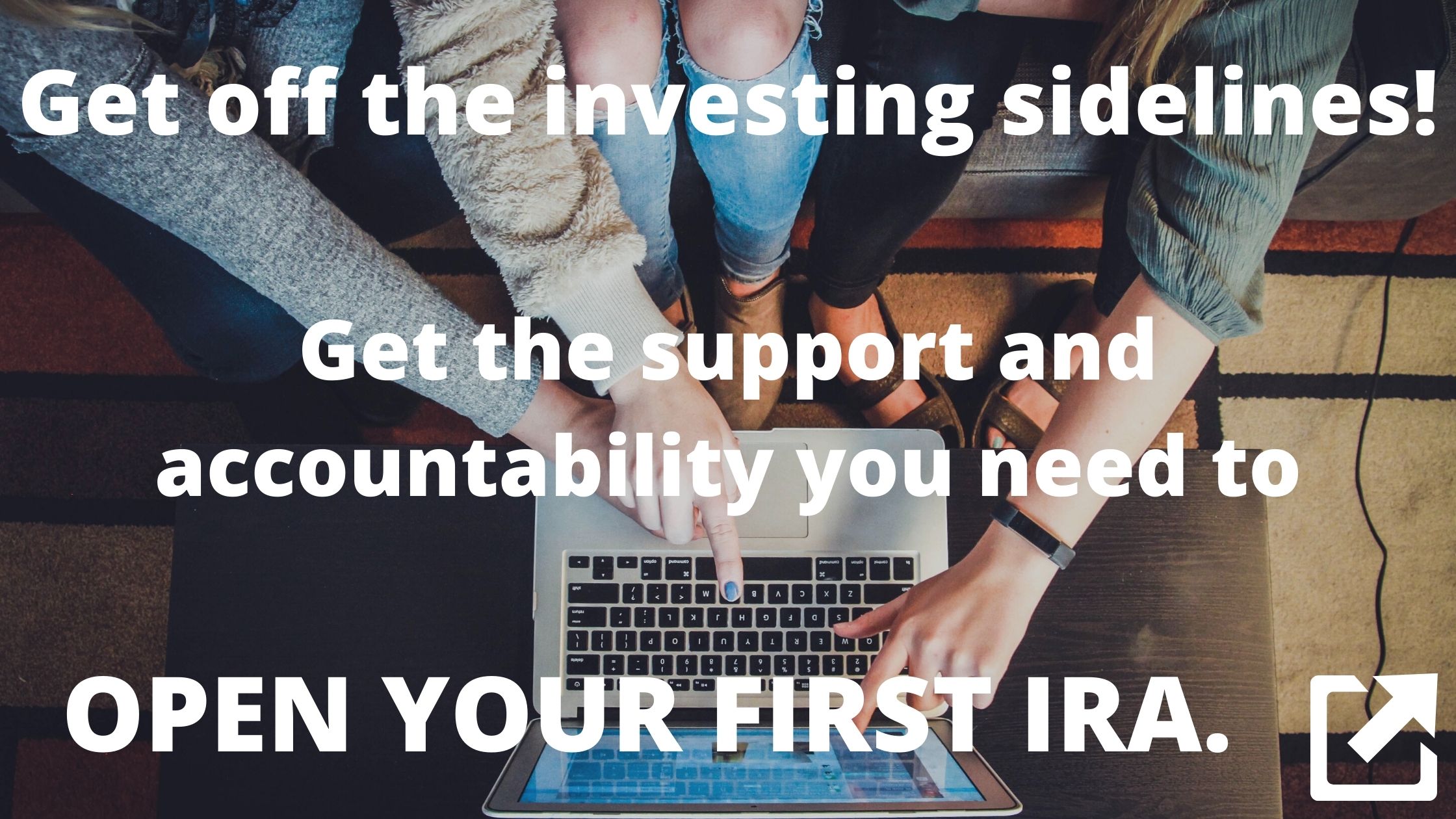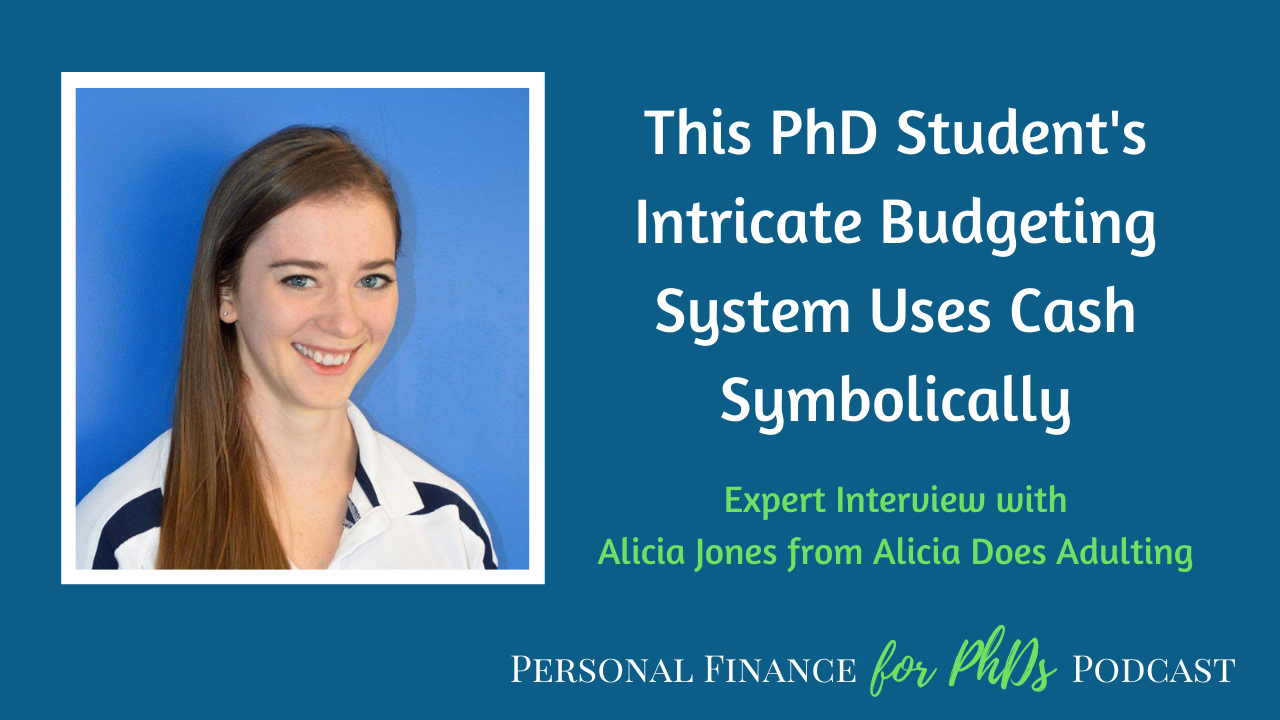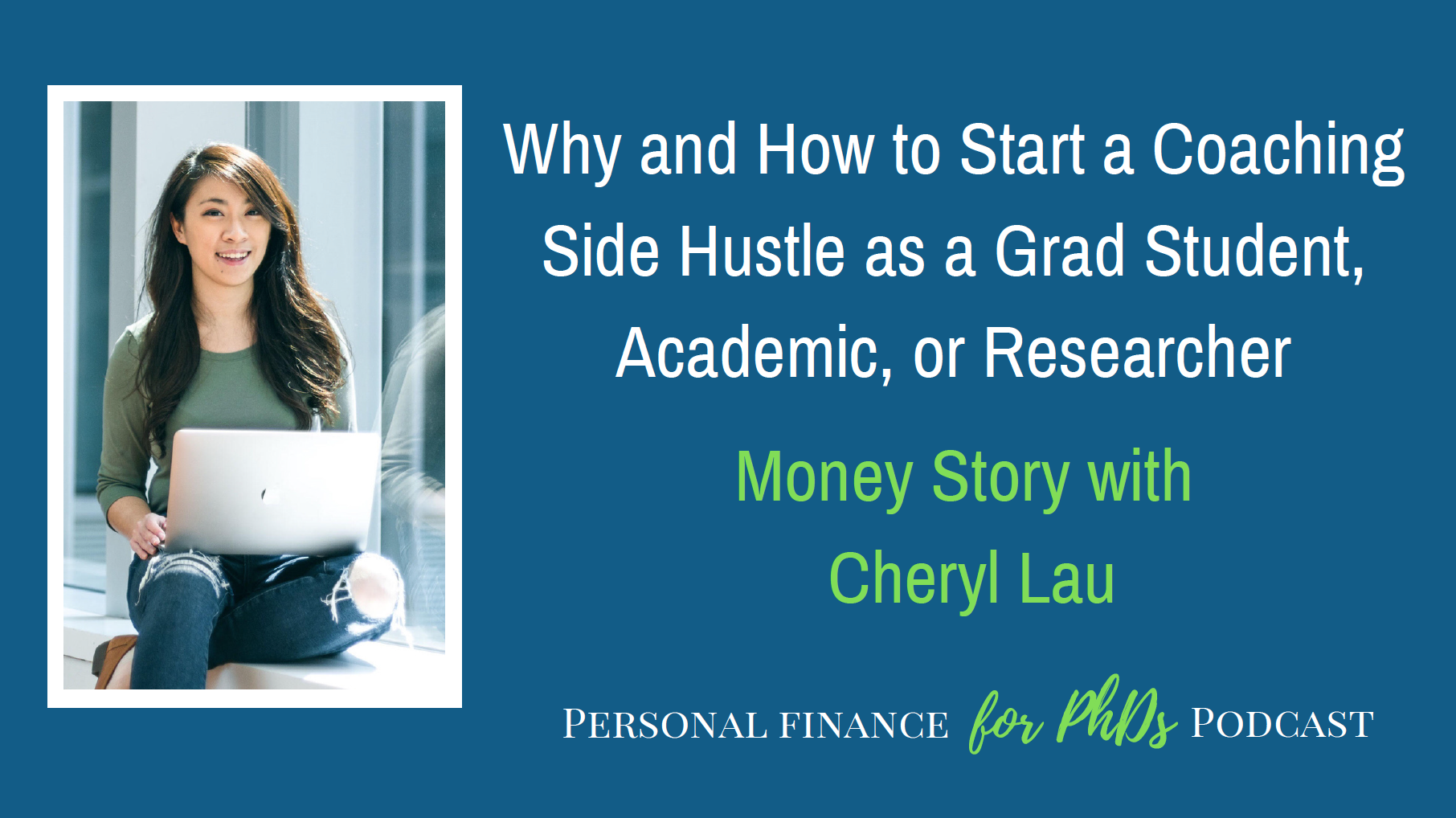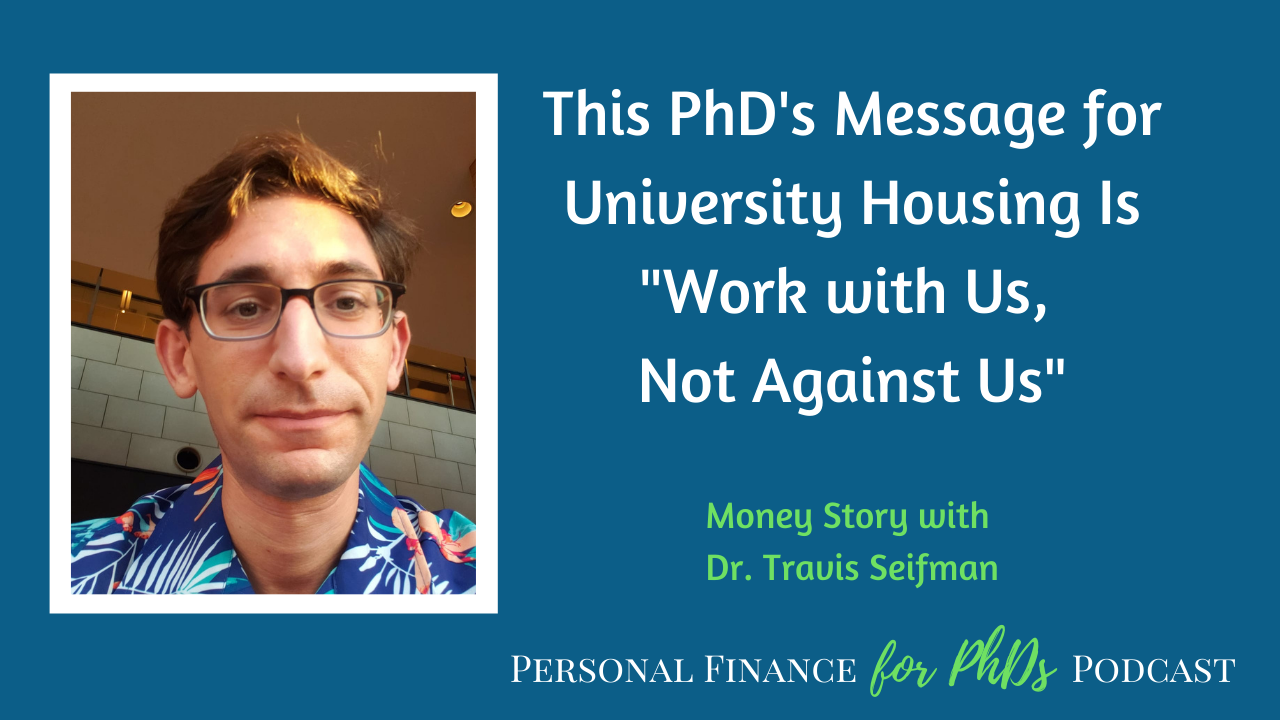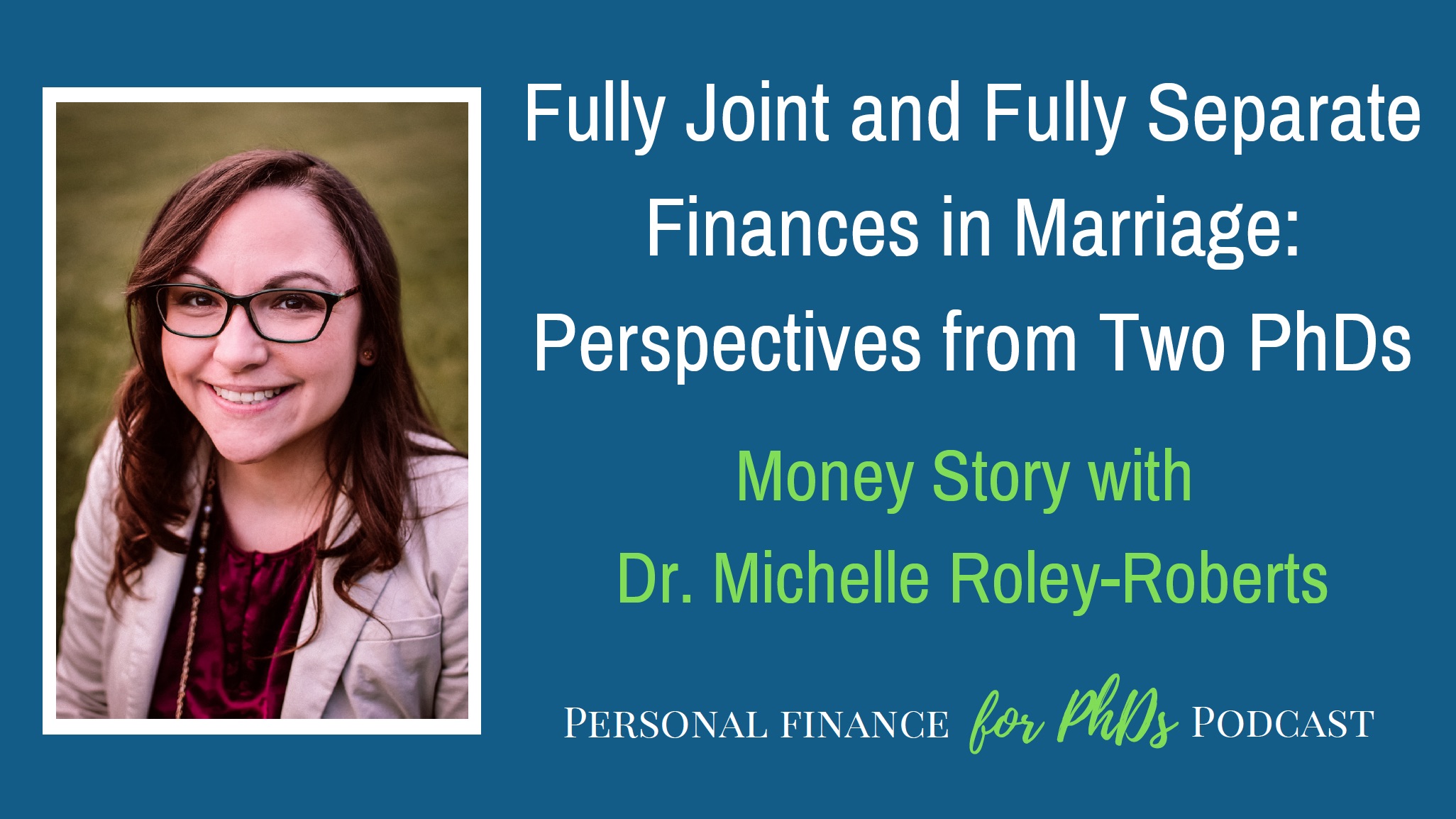In this episode, Emily interviews Julie Chang, a graduate student at Stanford University. Julie’s partner and parents live on the East Coast and she has family abroad, so during grad school she has pursued a specific credit card rewards strategy known as churning to help her travel hack. She has regularly flown domestically and internationally for several years almost exclusively using points and miles instead of cash. Julie details how she manages her churning strategy, including how she meets minimum spending requirements on her stipend, and how she has changed her strategy during the pandemic.
Links Mentioned in this Episode
- Find Julie Chang on Twitter
- Personal Finance for PhDs: Perfect Use of a Credit Card
- Personal Finance for PhDs: How to Establish Credit in the US
- Podcast Episode: How to Make Money without Working: Credit Card Rewards and 529s
- Personal Finance for PhDs: Community
- Personal Finance for PhDs: Podcast Hub
- Personal Finance for PhDs: Subscribe to the mailing list
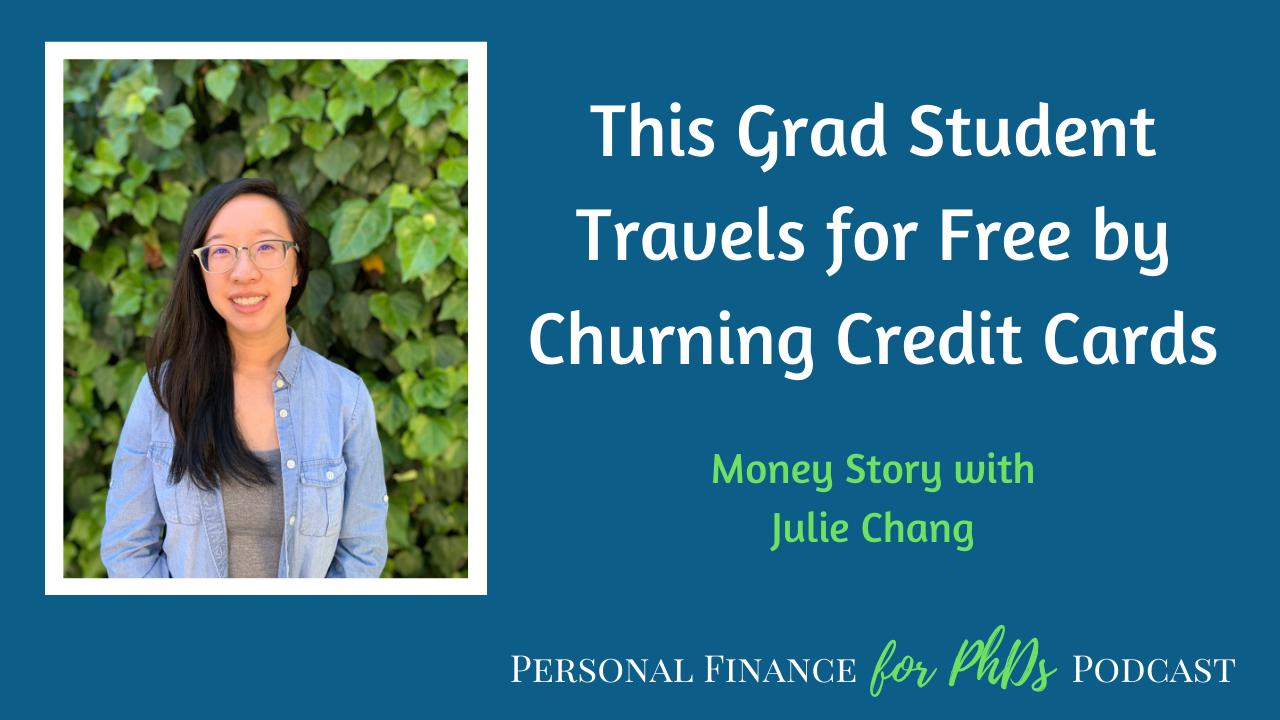
Teaser
00:00 Julie: Even if you don’t want to start off with churning right away, my best advice is to just get a credit card with a low minimum spend, and at least use that to start building your credit score and acquiring some points.
Introduction
00:18 Emily: Welcome to the Personal Finance for PhDs podcast, a higher education in personal finance. I’m your host Dr. Emily Roberts. This is season seven, episode eight, and today my guest is Julie Chang, a graduate student at Stanford university. Julie’s partner and parents live on the East coast and she has family abroad, so during grad school, she has pursued a specific credit card rewards strategy known as churning to help her travel hack. She has regularly flown domestically and internationally for several years, almost exclusively using points and miles instead of cash. Julie details, how she manages her churning strategy, including how she meets minimum spending requirements on her stipend and how she has changed her strategy during the pandemic.
01:06 Emily: Julie and I don’t go deeply into the topic of who can or should pursue credit card rewards or how to get started, so I’m going to point you to some free resources I’ve created on those topics. They’re all linked from the show notes for this episode, which you can find pfforphds.com/podcast. My article titled “Perfect Use of a Credit Card” explains how to avoid all the pitfalls that easily accompany credit card usage by putting in place some pretty stringent rules. You will have to be well-practiced and following strict rules in this area if you want to succeed with credit card rewards. My article titled “How to Establish Credit in the US” is for people who have recently arrived in the U S or who have lived in the US for many years, without taking out any debt. It explains how to get your first toe hold in the world of credit and how to build your credit score over time. Finally, in 2019, I published a podcast interview with Seonwoo Lee titled “How To Make Money Without Working: Credit Card rewards and 529s”. That episode is quite complimentary to this one, and I recommend listening to it. If you want to go deeper into the subject. Without further ado, here’s my interview with Julie Chang.
Will You Please Introduce Yourself Further
02:20 Emily: I have joining me on the podcast today, Julie Chang. She is a graduate student at Stanford currently, and we’re going to be talking about credit card hacking, credit card rewards strategies today. So, Julie, will you please introduce yourself a little bit further?
02:34 Julie: Sure. I’m a fifth year bioengineering PhD student at Stanford, and I’m currently studying how the mechanical properties of the extracellular matrix affect cell behavior and specifically in the context of cancer.
Credit Cards vs. Debit Cards
02:48 Emily: Yeah. Excellent. You have done what I used to view as the impossible, which is having a strategy for credit card rewards during graduate school. And I always thought there’s a little bit out of reach, so I’m really excited to learn more about credit card reward strategies in general, and then the strategy that you use in particular. Let’s just start off for listeners with what are the general advantages for using a credit card versus using a debit card? Because I know for me, I definitely started out just using debit cards. I was a little bit afraid of credit card. So what are the advantages?
03:22 Julie: Yeah, so I think there’s a couple of main advantages. The first is that you can earn rewards often in the form of points or miles, and then you can actually redeem this for either cash back or for miles to fund plane tickets. And on another point is that you can actually use credit cards to help build credit history. So in the future, when you’re buying a house, getting a mortgage, having a high credit score is super important.
03:50 Emily: And another benefit I’ll add to the two that you just mentioned is there’s a little bit more fraud protection available for credit cards. It’s quite easy to have a fraudulent charge reversed, erased on a credit card versus maybe more of a process or maybe even potentially impossible with certain charges on debit cards. Those are three, three great ones.
Pursuing Credit Card Rewards
04:08 Emily: Specifically on the rewards aspect of using credit cards, what are the different kinds of goals you might be able to pursue?
04:15 Julie: Right. Sometimes you can acquire airline points, so you can get a lot of Delta points, American airline points, and then you can use those to re redeem tickets, either domestically or internationally. On the other hand, you can also use points for cash back. Then you can actually use this to kind of pay yourself back when you purchase, say groceries or anything else. It kind of depends on the credit card.
04:43 Emily: Yeah. I know when I was in graduate school and I started learning about this area, I definitely only tried to pursue the static cashback, because I guess I sort of felt like the travel rewards were a little bit more, it’s a little bit higher level. It’s a little bit more complicated. It’s something you have to learn. There’s more of a learning curve on that. So I definitely stuck with the static stuff at first, which I think is a pretty common approach for people. But both of those are different kinds of strategies that will work. For you in particular why are we talking to this today? Why is this a strategy that you have learned a lot about and decided to pursue during your graduate degree?
05:19 Julie: For me, I’m doing my PhD program in California, but my family lives in New York, so then I would have to go back during breaks and my partner, he’s actually also a PhD student in Atlanta, so this requires a lot of traveling. Also a lot of my relatives are in Taiwan, so occasionally I make these international trips. Basically my perspective is using credit cards on things that I would purchase anyway and slowly build points to then redeem for these flight tickets. My goal was to not spend too much money on flights during grad school, but I don’t want money to be kind of a limiting factor in that I can’t see my partner or my family.
06:08 Emily: Okay. And was there…when did the shift happen? When did you set this as a goal? Was it just when you were starting graduate school, when you were looking at the geography of the situation and realizing the challenge, or did you go for while paying for flights in cash and then said, well, there must be a better way here.
06:23 Julie: I got into it just before graduate school since, I think to apply for credit cards, it’s a lot easier to apply for credit cards after you’re a certain age. It might be 21. So before then, I wasn’t really applying for credit cards anyway. And I think just when I turned 21 and then it was right before I went to graduate school, so it kind of worked out in that sense. And then I just kind of learned about it from searching online.
06:54 Emily: Yeah. And would you say that you’ve done more traveling than you would have been able to do just if you were paying straight cash? What’s been the effect on your finances, I guess?
07:06 Julie: Yeah. Essentially I typically don’t really need to factor flights into my budget, which is really, really awesome. And basically when I need to travel, I typically am able to, of course I still need to look at my budget overall, but there is a lot of flexibility. Another example is that my partner and I, we were able to go on a vacation to Greece, which typically the tickets might be a little bit more expensive and because we were able to pay for our flights in points, then maybe we have a little bit more flexibility in our budget for say housing or for food, during our vacation. So it definitely just reduces the impact of needing to spend a lot on a vacation.
07:50 Emily: Oh yeah. I mean, I can’t remember exactly what I was saving to spend on travel during graduate school, but I think it was at least a couple hundred dollars per month per person. And that was really mostly just for like obligation travel, like I have to go see my family, I want to go attend this wedding. So yeah, it’s really inspiring what you’ve been able to do. I’m really excited to dive into the mechanics of exactly how this happened.
The Basics of Credit Card Churning
08:13 Emily: What you have been doing as a strategy known as credit card churning. Can you explain what that is?
08:20 Julie: Yeah. Basically the bulk of the cash back from credit cards isn’t necessarily through the exact amount of money that you spend. It’s actually through these bonuses of signing up for new credit cards. For example, in some credit cards, you can get a certain number of points, usually it’s pretty high, maybe like 50,000 points, if you spend a certain amount of money in a few months. So a lot of cards you might have to spend $1,000 to $4,000 in about three months. And these points have 50,000 points. It could translate to say $500 if one is 1 cent, but if you can actually increase the value, say 1.50 cents per point, it becomes $750.
09:05 Emily: Yeah. I think maybe another way of phrasing what you just said is the amount of money that you need to spend to gain a given level of rewards is much less when you do that through signup bonuses, rather than through ongoing spending and ongoing cash back. There’s this lucrative period available right when you sign up for a new card. It’s the incentive that they’re giving you to do your business through that card versus some others. It’s this opportunity to capitalize on, right when you first switch onto a card. And so credit card churning is like very frequent switching onto new cards to gain those early on sign up bonuses. Is that right?
09:42 Julie: Yes, that’s correct.
Keeping Track of of Credit Cards
09:44 Emily: Okay, awesome. For you, as I said earlier, this is a little bit of an advanced level strategy. How do you keep track of all these cards that you either currently have, or maybe ones that you need to close, or maybe ones that you’re planning on opening? What is your mechanically…how do you keep track of all this?
10:04 Julie: Oh yeah. I basically do this through an old-fashioned spreadsheet. I color code everything. I typically put when I sign up for a credit card. And this is especially important if a credit card has an annual fee, because potentially you might want to cancel or downgrade the card when the annual fee comes up because it might not be worth keeping the card.
10:27 Emily: Yeah. So you keep track of when you sign up for a card, and then when one year, let’s say, is up for something that has an annual fee. Do you keep track of anything else? Maybe the minimum spend amount I would imagine, and the time period over what you have to do that?
10:40 Julie: Yeah. I keep track of all of that. I actually go into more detail in which I actually, every month I update all the point totals that I have and I also keep track of all of my redemption. So I think that might be a little bit extra in the amount of information I’m keeping track of, but for me it’s actually pretty fun to just tabulate everything.
11:01 Emily: Yeah. I could totally see how this would be fun because there’s kind of two halves of this, right? There’s like the accumulation of points and then there’s the planning of how am I going to actually use these points. And that is the really pleasurable par, I think, especially if one enjoys planning then getting to play around with different scenarios and so forth. Well, let’s come back to that in a few moments.
Meeting Minimum Spends
11:20 Emily: We just mentioned the minimum spending requirements like between one and $4,000 over a period of some months, that might seem like a lot of money on a graduate student’s stipend. So how do you actually make sure that you’re going to meet these minimum spends without, as you said earlier, outspending your budget, outspending your planned expenditures?
11:40 Julie: First I just want to be clear that everyone has to be very careful and tracking their finances. And you’re definitely in a very privileged position if you are able to do this. But for me, I look at many different factors. So one is timing. If I have a big purchase coming up, then I might as well use it in a minimum, spend another, more specific for graduate students is if you have conferences. So conferences can be pretty expensive. Sometimes you have to use your own credit card, so why not actually use it to help meet a minimum spend? Another thing that I’ve done is paying stuff in advance for other people, especially my family, where, for example, if we have a cell phone bill, I can pay that ahead of time. Another one that actually found out more recently is that you can actually pay estimated taxes with credit cards. And this is really interesting because with a credit card, there is a fee of, I think the lowest is 1.87%. But say, if you have a credit card that does 2% or even a special credit card, if the rotating category matches 5%, you can actually make money by paying the estimated taxes, which you actually have to do anyway. However, if you don’t have a card for that, if you’re actually trying to meet a minimum spend, perhaps it is worth it to pay that fee to kind of help you get that really high bonus for the credit card.
How Many Cards is Too Many
13:09 Emily: So for you, like let’s say in 2019, how many new cards did you sign up for?
13:19 Julie: I would say I haven’t signed up for too many cards just because I’ve been slowing down a little bit towards the end of my PhD, but I would guess maybe three to four cards, so nothing too crazy. I know there’s people that are super into it that might sign up for 10-20 cards per year.
13:36 Emily: Yeah. Well, that’s 10-20, that’s a number of more minimum spends that you need to hit. Actually three to four sounds like fast, but like okay, reasonable pace for graduate students. I think that this strategy of keeping track of minimum spends and what your expenses might be that are coming up that might help you meet those minimum spends, it goes actually really well with the strategy I love to talk about, which is that of targeted savings accounts. Not specifically the saving in advance for doing things, which is also a good idea, but actually more the planning aspect that comes along with keeping account budgeting like that is that you can look out over the next six months or over the next year and say, yup, I know that this large expense is hitting in this month. I know this needs to be, be paid here. And I definitely found that there were some one, two month periods when I was in graduate school where I would have like a flight I needed to buy, well, I was buying them in cash, a flight I needed to buy, and my six month car insurance premium was coming up and there were some other maybe some housewares or electronics purchase we need to make. There were definitely months where they would hit kind of like that, and I was budgeting for those and using targeted savings and thought that was great, but hey, the next level up from that is yes, save in advance, but why not also put it on a credit card and meet a minimum spend that you’re gearing up for anyway.
When to Apply for a New Card
14:48 Emily: This is more of a personally motivated question, but how far in advance of, let’s say a major purchase that you know is coming up on a certain date, would you need to sign up for a card? How do you actually time this so you know that you have the card ready to go when you actually need to make the purchase.
15:04 Julie: Yeah. I mean, I would probably do at least a month just because you have to apply for the card. And in some cases, if you’re not approved right away, you might have to wait a week or so. And that doesn’t mean that they’ll reject you, it’s just something that is part of the process. Another is if you put a credit freeze on your credit score, so that’s actually something I’ve done to be extra careful, you might have to lift your credit freeze, and that also takes some time. So I would budget at least a month.
15:35 Emily: Yeah. I know there’s a little bit of a game there because you need to give some buffer time in advance, but you also need to have enough purchases within the period of time to get the bonus to go through.
Commercial
15:46 Emily: Emily here for a brief interlude. If you are a fan of this podcast, I invite you to check out the Personal Finance for PhDs Community at pfforphds.community. The community is for PhDs and people pursuing PhDs who want to take charge of their personal finances by opening and funding an IRA, starting to budget, aggressively paying off debt, financially navigating a life or career transition, maximizing the income from a side hustle, preparing an accurate tax return, and much more. Inside the community, you’ll have access to a library of financial education products, which I add to every month. There is also a discussion forum, monthly live calls with me, book club and progress journaling for financial goals. Basically, the community exists to help you reach your financial goals, whatever they are go to pfforphds.community to find out more. I can’t wait to help propel you to financial success. Now back to the interview.
Using Credit Card Churning to Fund Travel
16:50 Emily: So you mentioned the challenge that you were facing of living far from your family and your partner, and you also mentioned, okay, you’ve been able to, for instance, you were able to go to Greece with your partner. What were some of the other benefits that you’ve experienced by doing this? For instance, have you ballparked like how much money you have not spent on travel by doing this strategy? Or can you tell us a little bit more about the upside?
17:13 Julie: It’s definitely quite a bit of money that I’ve saved through travel. I don’t remember exactly how much, but for example, I would go from California to New York round trip before the pandemic, probably two to three times a year. Then in addition, I would also go to Atlanta or vice versa maybe a couple of times a year. So it’s definitely many flights that I’ve saved on. And pretty much I’ve been able to not pay cash for most of my flights during grad school.
17:44 Emily: Yeah. It’s just an incredible benefit to not have to have that aspect in your budget, of paying for travel when you know that you have to do it like this. It’s really amazing that money can come kind of from nowhere, if you have a great credit score, if you’re really on top of your budget, if you have a spreadsheet like you do and you’re keeping track of everything and being diligent. It’s just amazing how much money you can free up for your budget. So I hope this is sounding like good news to some people in the audience who are currently spending more than they would like to on travel.
Credit Card Churning Strategies
18:14 Emily: For you, like when you’re realizing you’ve come to the end of a one period of minimum spend and you start thinking, well, what’s going to be my next card, how do you search out these cards? How do you actually find that’s going to be the best fit for you?
18:27 Julie: There’s a lot of very active communities on the internet. Specifically on Reddit, there’s a subreddit called churning that has all of these. There’s a lot of specific websites such as Doctor of Credit. Actually, I keep pretty up to date and people will typically announce whether there might be a new card coming up. But for me as a graduate student, if I know I don’t have any big purchases coming up, it’s also a practice of self-restraint, where I know I shouldn’t apply for new credit card, and instead kind of look at my portfolio of credit cards and see perhaps certain cards have increased points per certain category and maximize that instead.
19:10 Emily: I see. And then you mentioned earlier cards with annual fees, specifically canceling a card with an annual fee before that second fee comes up. How do those overall play into your strategy? Is it something that people should consider or maybe should avoid? What are your thoughts about that?
19:26 Julie: I would say definitely for beginners, maybe focusing on cards without annual fees because they also have much lower minimum spends, so it would be pretty easy to hit minimum spend. But for me, the only card I have with an annual fee that I currently use is a Chase Sapphire Reserve. For me, I always have to do a calculation, whether it’s worth it for me to keep the card for the next year. There’s certain factors that I consider. One is looking at the benefits that the card offers and if I would actually use that, and another that I might consider is whether keeping the card will help me increase the value of the points that I’m spending. For example, with the Chase Sapphire Reserve, each point I can actually redeem for 1.50 cents instead of just 1 cent.
20:19 Emily: Yeah. I actually, so also for me, the Chase Sapphire Reserve was the first or maybe the second card with an annual fee that I ever signed up for. And I actually just canceled it a few months ago because I was like, I’m not traveling. I’m not traveling anytime soon. I don’t want to pay this fee because I do not see any redemption on the horizon. What I did specifically with that was I transferred the points to another Chase branded card that we had figuring at some point in the future, I’ll probably get the Reserve or the Preferred again, transfer the points back and be able to redeem them at at least that much value, if not more/better later on. So that was my particular solution to that, but I’m glad that you reevaluated and decided, okay, I’m going to keep this card for the time being. It does have some pretty nice perks to it for a high fee.
Churning During the Pandemic
21:04 Emily: Speaking of the pandemic and recent changes, what has been going on with you and this strategy in the last six months?
21:11 Julie: Yeah. So there has actually been a lot of changes to the point space since the pandemic and I think these effects are likely to stay for quite a while. So obviously I’m not redeeming my points for travel; however, for Chase, because they realize this they’re actually allowing you to redeem 1.50 cent per point for groceries. Before it used to be just travel, but now it’s actually for grocery purchases. So for me, if I put my grocery spend on the Chase Sapphire reserve, I’m able to redeem those points for the groceries. And also since I had a few canceled flights this earlier this year, then I’m not really looking to apply for cards that will give me more miles, but I might look for cars that give me a little bit more flexibility in how I can use those points.
22:01 Emily: Hmm. So when I thought about the pandemic and affecting my travel plans, both personally and professionally, I’m already in a period of not applying for cards right now because my husband and I are looking forward to buying a house in a few months. And so we don’t want to be messing around with our credit right now. If not, I think I would probably still be signing up for stuff because I, again, hypothetically, I think my attitude would be well, get the points, bank them now, spend them later at some point. Why is that not your approach? Why do you prefer the flexibility right now?
Julie (22:36): Well, so actually right now, I’m not really applying for cards and I’m just kind of using my current portfolio of cards to reach or to kind of build up the points, as you said. I might look towards applying for a card later this year, but I’m actually not in a rush to apply for new cards right now.
Planning Point Spending
22:59 Emily: Yeah. You said you updated your spreadsheet monthly with figuring out how many points you currently have and with what providers and so forth, how do you go about planning how you’re going to spend the points? What is that process like for figuring out, okay, these points transfer to this airline, you know, all of the complexity that goes along with that.
23:18 Julie: Yeah. That I would say is actually the hard part of figuring out how to use those points. There’s certain programs, like Chase, where it’s pretty easy to redeem the points because you can just do it through any airline by using Chase travel, but certain cards you can actually transfer it to specific airlines and convert it into miles, which is actually, even though it’s harder, it could be better because you could get better value for your points. For me, I like having points in several different companies, for example, also in American Express. I also have points specifically in Delta, so then whenever I, for example, if I want to travel to New York, I can look at what are the different points I have and figure out which program I want to redeem it in for the best value.
24:10 Emily: I’m also thinking that some of this, the planning of the redemption might be specific to your local city. You obviously live in a major city with several different airports and airlines to choose from. I’m also reflecting, I recently moved from Seattle to the Los Angeles area. So in Seattle it’s all about Alaska. Like Alaska is by far the winner airline right there, so I was always trying to sort of figure out how to get Alaska airline points versus other things. Now that I live in a different kind of city I’m thinking, well, my strategy might need to be different. Do you know of any resources where people can find out more about the airlines that service their local airports or maybe their destination where they commonly go, they want to figure out how to do that?
24:51 Julie: I think the best way to figure that out is just looking through the specific airline website and figuring out which destinations your city travels to. But otherwise also just looking online to see what other people tend to do in your city.
25:08 Emily: Yeah. And I guess if you live in a major city, like the San Francisco Bay area, Seattle, Los Angeles, there’s going to be plenty of conversation around how to do this in cities like that. Well, is there anything else you want to add to tell the audience more about your strategy or what you’ve been able to do with it?
25:26 Julie: I think as a graduate student, even if you don’t want to start off with churning right away, my best advice is to just get a credit card with a low minimum spend and at least use that to start building your credit score and acquiring some points.
Best Financial Advice for Early Career PhDs
25:43 Emily: So Julie, as we wrap up this interview, what is your best financial advice for another early career PhD?
25:50 Julie: My best financial advice would be to start early. Many financial related actions serve their greatest benefits when done early, so the effects can be compounded over time. And I think this not only applies to investments compounding over time, but also any positive practices that you do such as saving money on food by not eating out too much or using credit cards to your advantage.
26:14 Emily: Yeah, absolutely agree. Starting early, I mean, a lot of graduate students might feel like they don’t have a lot of options right now, especially living on a lower stipend, but anything you can do any habits that you can form any even habits of mind that you can work on, it’s all going to benefit you throughout your time in graduate school, after that going into your career, and really, I like to think of it as, if you build up these habits and practices and thought patterns right now during graduate school, once you get that higher salary later, you’re going to be able to like hit the ground running blast through financial goals, when you get to that point, if you’ve done the sort of mental preparation beforehand, even if you don’t see a lot of actual financial progress earlier on.
26:57 Emily: Thank you so much that advice, and thank you so much for joining me today, telling the audience about your strategy. I’m really excited post buying a house to be back on the credit card rewards game so this is really inspiring to me.
27:11 Julie: Thank you.
Outtro
27:13 Emily: Listeners, thank you for joining me for this episode. PFforPhDs.com/podcast is the hub for the personal finance for PhDs podcast. There you can find links to all the episode show notes, and a form to volunteer to be interviewed. I’d love for you to check it out and get more involved. If you’ve been enjoying the podcast, please consider joining my mailing list for my behind the scenes commentary about each episode. Register at PFforPhDs.com/subscribe. See you in the next episode, and remember, you don’t have to have a PhD to succeed with personal finance, but it helps. The music is stages of awakening by Poddington Bear from the Free Music Archive and is shared under CC by NC. Podcast editing and show notes creation by Lourdes Bobbio.
